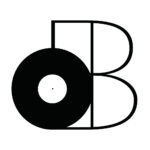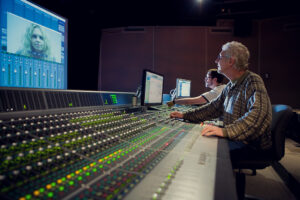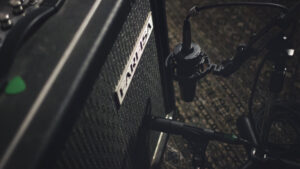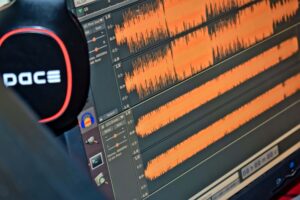Besides ISRC codes, you’ll most likely need to equip your music with an International Standard Musical Work Code (ISWC). If you need to learn how to get ISWC codes for your musical composition, you’re either the writer and/or are working with the writer (acting as the publisher). If that’s the case, then you’ll definitely want to keep reading!
There aren’t that many ways to obtain ISWC codes for your music. In fact, there’s only ONE way to get ISWC codes for your music and it’s FREE. You’ll simply need to register your musical work with your Performance Rights Organization (PRO). The rest of this article is designed to guide you through the process and to address any concerns.
- What are ISWC codes used for?
- The difference between ISWC and ISRC codes
- Getting an ISWC code for your music using your Performance Rights Organization (PRO)
- Do you need ISWC codes to stream your music?
What are ISWC codes used for?
ISWC codes are used to track copyrights. More specifically, these codes are designed to identify the owner(s) of the musical work. When it comes to distributing royalties, these codes are used to administer payment to writers/publishers.
However, it’s much more important to supply your IPI number which is assigned solely to you, the writer.
We’ll talk more about that in another article… For now, just keep in mind that you’ll need ISWC codes to collect royalties on your musical COMPOSITIONS. We’re not talking about the musical RECORDING.
The difference between ISWC and ISRC codes
If ISWC are used to identify musical compositions, then ISRC codes are used to identify musical recordings. More specifically, both of these codes are designed to identify the RIGHTS OWNERS of each of these pieces of intellectual property.
However, ISRC codes AREN’T supplied by your Performance Rights Organization.
I explain how to get ISRC codes for your music in this article if you’re interested.
ISWC codes are also FREE, which isn’t always the case with ISRC codes. If you ask me though, I say that the ISWC code is much more important for royalties. ISWC is associated with performance royalties while ISRC is associated with mechanical royalties.
Performance royalties usually pay more. In fact, most rights owners lose out on mechanical royalties altogether! If you want to learn more, read this article.
If you own both the recording and the composition though, you’ll want BOTH of these codes.
Getting an ISWC code for your music using your Performance Rights Organization (PRO)
The easiest and most used method for getting an ISWC code is to register your music through your performance rights organization (PRO). If you’ve never done this, I highly recommend reading my guide on the subject before proceeding.
We won’t cover the smaller details in this article, so it’s important.
Assuming you’ve done this before though, we’ll simply be registering and/or reviewing. It’ll be slightly different depending on which PRO you’re using (I use SOCAN).
However, the ISWC code will most likely be located under your registered track.
It’s where you can see information like:
- Title
- Composer
- Other Owners
- Duration
Once the track is properly registered, it should be automatically assigned an ISWC code.
If you’re having difficulty, you can contact your PRO for more information. If you use SOCAN as well, you can leave me a comment for any specific questions.
Do you need ISWC codes to stream your music?
You don’t need ISWC codes to stream your music, but you do need them if you want to collect performance royalties on those streams. For example, if your music is streamed in public somewhere (restaurant, bar, etc…) and/or aired on the radio.
The streaming services themselves don’t need your ISWC codes.
The only times ISWC codes may be asked of you is if you’re licensing your music for TV/Radio placements.
The music supervisor you’re working with may ask for that kind of information.
However, you’ll most likely be taken care of with TV/Radio stations since they’re used to working with copyrights. They can either access that information through your PRO’s database or will find it through the licensing platform (SourceAudio, your supervisor, etc…).
If you’re having some delays in obtaining your ISWC codes though (it happens), you can supply your CAE/IPI number instead which will at least direct the money to you, the writer.
Ideally, you’ll want to register your songs for an ISWC number as soon as possible!
I hope that this article helped clarify any confusion on the subject. If you have any questions, feel free to leave a comment. If you need personalized guidance, you can also schedule a 1-on-1 consultation with me. Now, go publish some music!
Sources
https://help.songtrust.com/knowledge/everything-you-need-to-know-about-iswc-codes









4 thoughts on “How To Get ISWC Codes For Your Music”
Hello, thank you for this article. I’m wondering the sequence of the song development process. I am preparing to press a new project, but this time social marketing is involved. The album features 7 songs I’ve written and perform as well as 5 Bing Crosby classics I perform. Copyrights and licensing are being done, but don’t I need the ISRC and ISWC codes to go into each song file before the CD replication process? My p.r.o is ASCAP.
Hey EDe,
You’ll get your ISWC codes from ASCAP once you register your tracks.
Your music distributor will provide you with the ISRC codes before releasing your music. They can’t release your music without assigning ISRC codes.
If you’re planning to do both physical and digital releases though, just make sure that you only use one set of ISRC codes. For example, if you release the CD first, you’ll have to enter the same ISRC codes manually on streaming services (otherwise, they’ll automatically assign new ones).
In regards to files, you don’t actually need to embed this information into the files.
I just keep them on spreadsheets along with my other metadata in case I need to provide a publisher/distributor with that information.
I hope that helps, let me know if you need more assistance. Thanks, take care!
– Stefan
bonjour,
je voudrait savoir si la socan nous fourni aussi le iswc??
Salut John,
Oui, en enregistrant votre musique avec SOCAN, vous créez essentiellement un code ISWC.
Si vous avez d’autres question, n’hésitez pas. Merci!
– Stefan